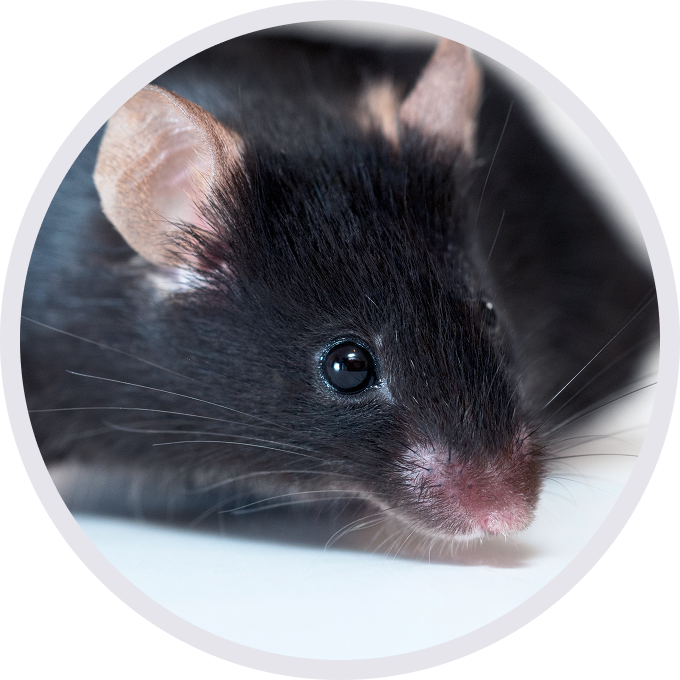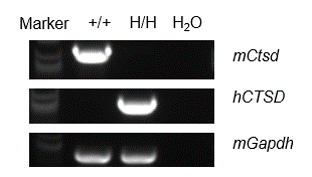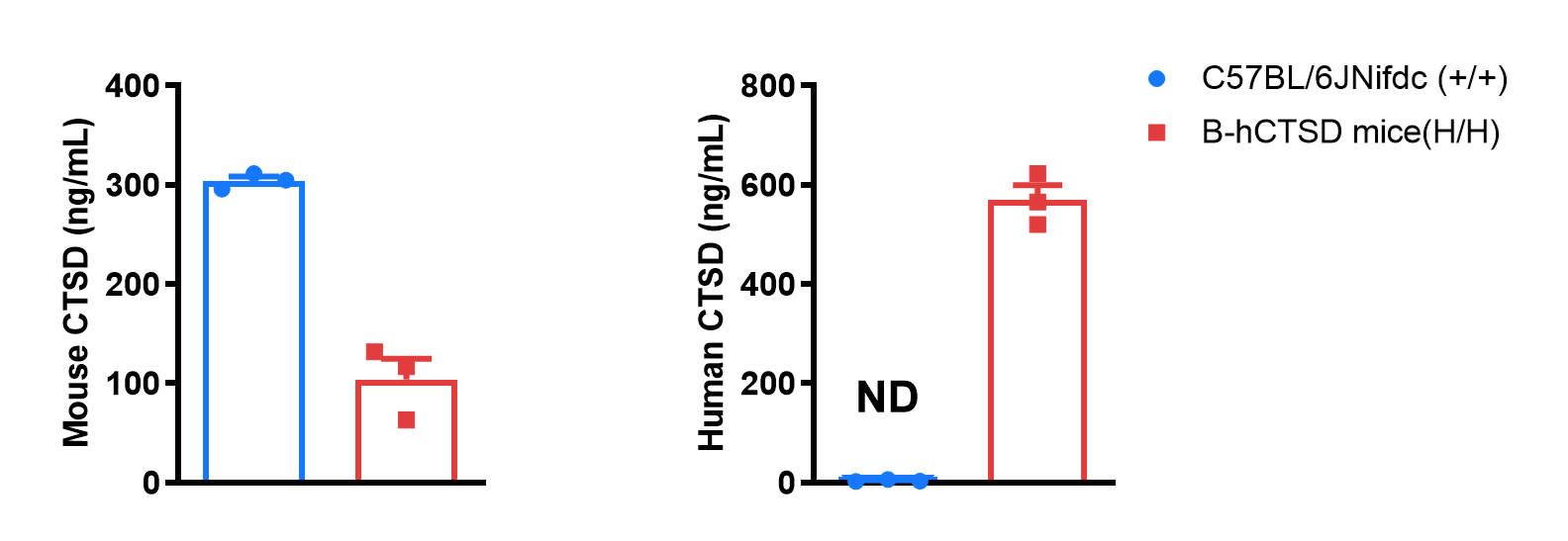
C57BL/6JNifdc-Ctsdtm1(CTSD)Bcgen/Bcgen • 113311
Gene targeting strategy for B-hCTSD mice. The exons 1-9 of mouse Ctsd gene that encode the whole molecule (ATG to STOP codon), including 3’UTR were replaced by human counterparts in B-hCTSD mice. The promoter and 5’UTR region of the mouse gene are retained. The human CTSD expression is driven by endogenous mouse Ctsd promoter, while mouse Ctsd gene transcription and translation will be disrupted.

Strain specific analysis of CTSD mRNA expression in wild-type mice mice and B-hCTSD mice by RT-PCR. Liver RNA were isolated from wild-type mice (+/+) and homozygous B-hCTSD mice (H/H), then cDNA libraries were synthesized by reverse transcription, followed by PCR with human CTSD primers. Mouse Ctsd mRNA was only detectable in wild-type mice. Human CTSD mRNA was exclusively detectable in homozygous B-hCTSD mice but not in wild-type mice.

Strain specific CTSD expression analysis in wild-type C57BL/6JNifdc mice and homozygous humanized B-hCTSD mice by ELISA. Serum was collected from wild-type C57BL/6JNifdc mice (+/+) (female, n=3, 6-week-old) and homozygous B-hCTSD mice (H/H) (female, n=3, 6-week-old). Expression level of mouse and human CTSD were analyzed by ELISA (anti-mouse CTSD ELISA kit: Abcam, ab239420; anti-human CTSD ELISA kit: Abcam, ab119586). Mouse CTSD was detectable in wild-type C57BL/6JNifdc mice and B-hCTSD mice, The anti-mouse Ctsd antibody may be weak cross-reactive between mouse and human. Human CTSD was exclusively detectable in homozygous B-hCTSD mice (n=3). Values are expressed as mean ± SEM.